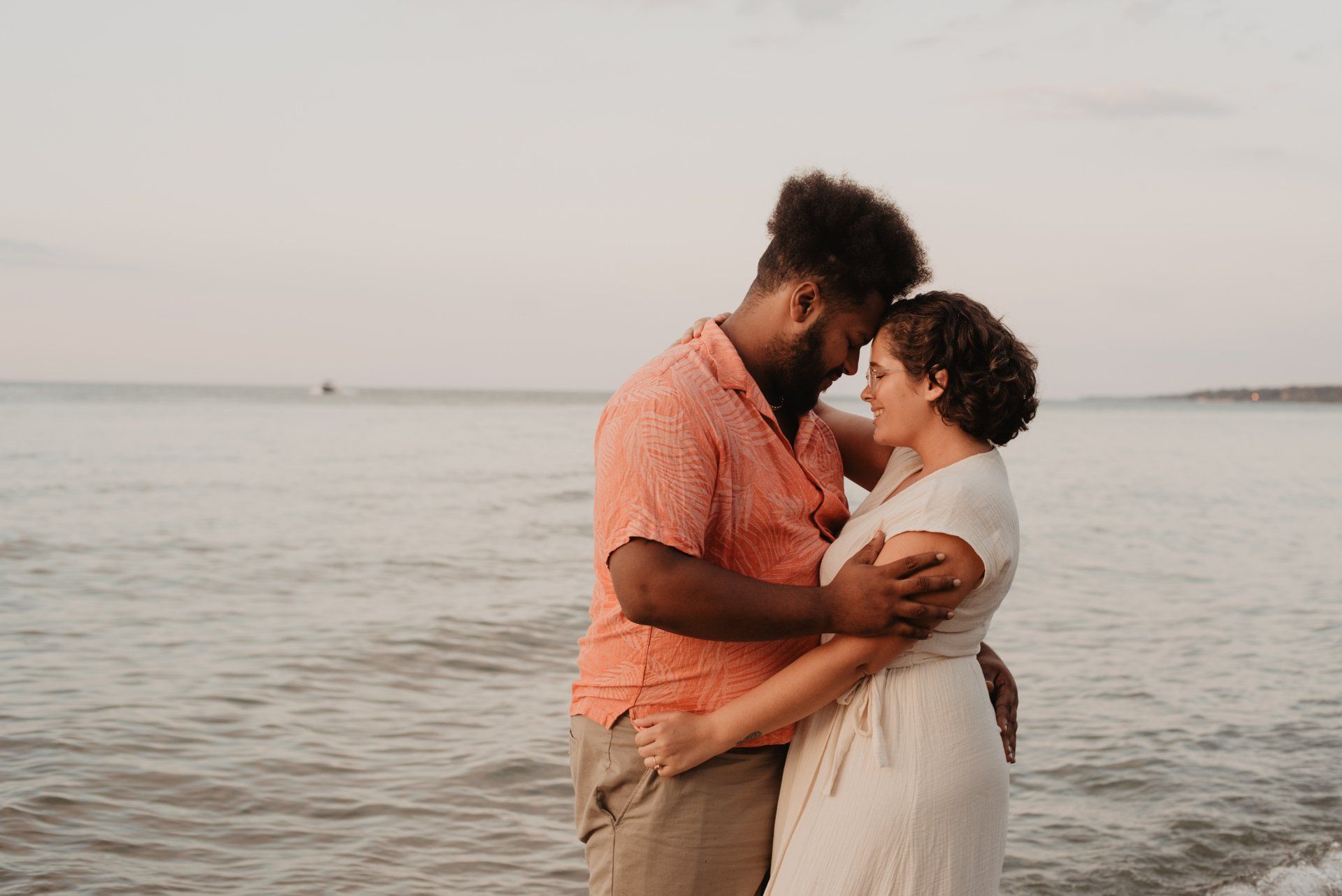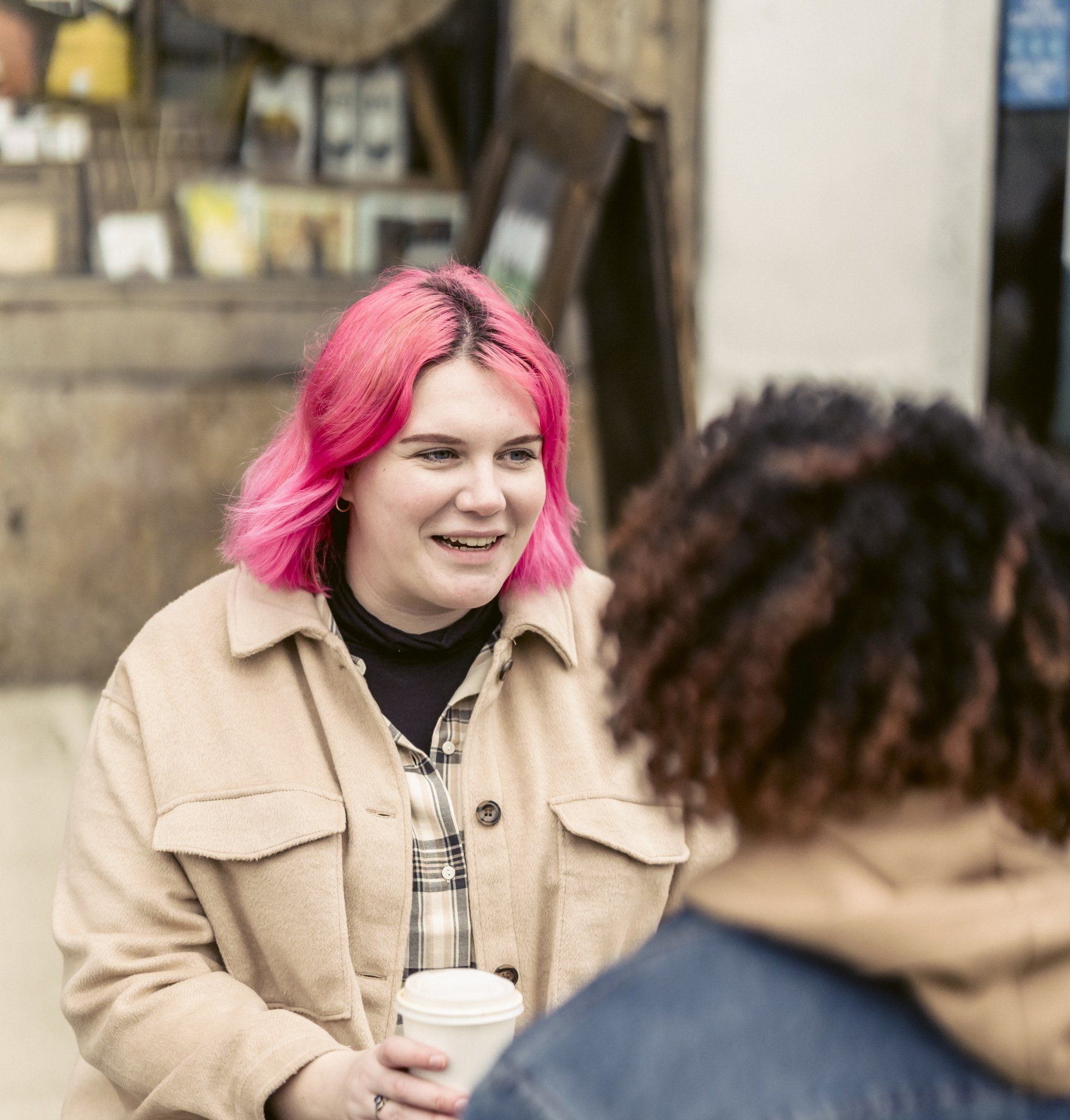Reading time: 8 mins
At some point in our binge eating recovery journeys, many of us will decide that we can’t or that we don’t want to go it alone any more. And I know that the decision to get support often isn’t an easy one. It can bring up all kinds of stuff. Perhaps you’ve experienced this with thoughts like “I’m not worthy of help” and “I can’t afford it” or have felt scared to make a potentially life-changing commitment.
I know this because these are the same barriers that stopped me from getting the support I needed in my own journey, even though I was scared that I’d never be able to stop binge eating on my own. In recent years, however, I have invested in myself in lots of ways. And I use the word “invested” rather than “paid for” because it really is that. You put money into support and, if you made the right investment for you, you get so much more out of it!
I’ve made small investments into myself like one-off workshops and I’ve made larger ones like a 6-month group mentorship. I’ve made investments purely by myself and other times I’ve asked my family if they can help with the cost. I’ve deeply regretted an investment and I’ve been incredibly thankful for others. I’ve been through it all and I’ve got a lot of lessons to share…
In this guide, we’re really getting into the money and energetic sides and saying “yes” to your recovery by investing in yourself. If you’re at the earlier stages and just starting to look into support, I recommend that you read these two guides first:
“Which Type of Binge Eating Support is Best for Me: Counselling, Therapy or Coaching?” followed by
“What Level of Support Do I Need to Heal from Binge Eating: 1-1, Group or Self-paced?”.
Find your “inner yes”
Know you’re worthy of support
You might feel like “who am I to get help?”, especially when other people around you have had challenges in life but haven’t reached out. Or, you might feel like other people are way more deserving of help than you. Perhaps you feel like you’re only worthy of a bit of help, like an online masterclass, rather than working 1-1 with a coach.
I’ve particularly felt this myself when working with high-level coaches, as though I’m not special enough to be worthy of their time. Let me tell you, this belief is bulls**t and it’s hugely limiting you!
If you feel this way, leaning into your innate worthiness may be a big part of your binge eating recovery journey. There’s more on this in my article
“Why do I feel unworthy or not enough?”.
“I want it but I can’t afford it”
Ask if there’s a payment plan
Many counsellors, therapists and coaches offer payment plans to make their work more accessible. That usually looks like paying for a programme or a number of sessions over the course of several months. Some might also offer scholarships for those who really can’t afford their work but who they see would very much benefit from it. Sometimes this is free access to their online programme, other times discounted 1-1 sessions.
In my
1-1 coaching I offer payment plans as well as a limited number of scholarships at 50% off. If there’s someone else you want to work with but they don’t advertise payment plans, reach out and ask them if it’s a possibility. Again, the worst they can say is no.
See if there’s another offering
If there is someone who you really want to work with but you can’t afford their 1-1 support, have a look at whether they have an offering at a lower price. This may be group coaching, an online programme or a masterclass and although it may not be as impactful, it’ll give you some of the information or tools you’re looking for. You can always explore working 1-1 with them again in the future if it’s still something you want.
You can also reach out and ask if it’s possible to do just a few sessions with them around an area you particularly struggle with. I’ve put bespoke packages together for clients before and I know there will be others who’ll want to support you in that way too, if they can.
S t r e t c h yourself a little
Making an investment in yourself is part of the transformation. It’s a way of committing. A way of expanding into the next level of your recovery. Because when we spend a relatively large amount of money on something, we tend to want to get the most from it and it shows us that we believe we’re worthy! This ties in with the above points about being able to afford support, but is a little more subtle…
Consider this for a moment; you have a steady income and are able to save £250 a month for the bigger things in life you desire. You want to get help with binge eating and have a choice of buying an online course which sounds great and costs £55 or buying another course which also sounds great and costs £650. Which do you think you would devote yourself to and show up for more? Which do you think would have the greater impact on your binge eating recovery?
This is a sticky point for some because we also have all kinds of beliefs that play into our relationship with money. Personally, I used to believe that support should be either free or really affordable. But now I see that we need different levels of support at different prices to serve people at different stages in their lives and finances. Having things given to us for free can sometimes be a disservice to us. There often needs to be an exchange. I’d also want to pay someone to help me knowing that they themselves are well-resourced and able to fully show up in their support, rather than having a burnt-out nervous system from trying to make ends meet.
Again, this is a
little
stretch I’m talking about. Not one which is going to break you, but one which makes you feel expanded and excited by the possibilities! And what this little stretch is will be completely unique to each of us.
Don’t rush
Celebrate yourself!
Investing in support is a HUGE step in your binge eating recovery and one that absolutely deserves celebrating! Plus, when you celebrate your steps forward regularly, you’re literally wiring neurons together within your brain and creating pathways which make taking future steps forward easier 🥳
Celebrate in your own way, whether that’s sharing your excitement with a loved one, taking yourself on a day trip, dancing to a favourite song, or anything else that amplifies your “yes”!
I really hope this guide helps you to come to the best binge eating support choice for you, and that you feel confident when you make that investment. Now, over to you…
If you found this helpful, here are some more resources for you
By Lucy Newport
•
May 5, 2025
Emotional discomfort often feels like something to avoid but it can be a powerful gateway to growth. A personal story of transformation in binge eating recovery from Binge Free & Worthy.
By Lucy Newport
•
March 4, 2024
Explore the definitions of ‘binge eating’ and ‘compulsive eating’, how they differ and which term best reflects your experiences with food.
By Lucy Newport
•
February 14, 2024
Here’s a personal story to help you get out of your own way and seek support in your binge eating recovery.
By Lucy Newport
•
February 13, 2023
My ex-partner shares his advice for anyone who has a loved one struggling with binge eating. Read more.
By Lucy Newport
•
February 6, 2023
My ex-partner shares his experiences of me telling him about my binge eating struggles. Read more.
By Lucy Newport
•
December 6, 2022
Advice from a binge eating recovery coach for anyone supporting a loved one who binge eats. Read more.









